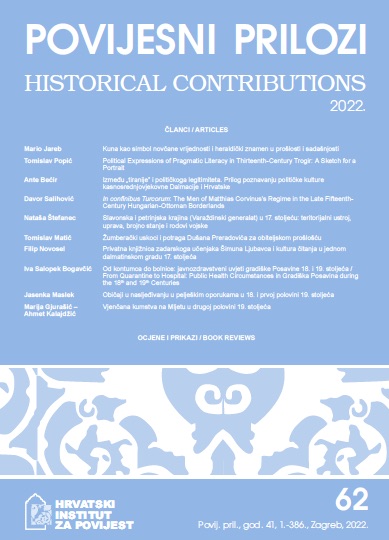Between „Tyranny“ and Political Legitimacy.
DOI:
https://doi.org/10.22586/pp.v41i62.19687Keywords:
Political Culture, Tyranny, Political Legitimacy, Dalmatia and Croatia, Late Middle AgesAbstract
The intention of this paper is to problematize the relationship between “legitimate” and “illegitimate” government in late medieval political notions through the prism of selected examples from the late medieval history of Dalmatia and Croatia. In order to better understand the topic, the selected examples will be placed in the theoretical framework of medieval political thought. Namely, each of the latter examples represents a separate point of view, which seeks to point to the coexistence of different political views, which arise from conflicting interests. In other words, what is "tyranny" for some is legitimate and justified rule to others. The factional struggles in Trogir at the beginning of the 14th century, the chronicle discourse of Miha Madijev and his portrayal of Croatian nobles, and finally the views expressed by the ambassadors of the Trogir commoners in Venice in 1421 are very grateful and exemplary examples. Following the analysis of the mentioned and also some other examples, the author will draw certain (comparative) conclusions about medieval political culture.
Downloads
Published
How to Cite
Issue
Section
License
Copyright (c) 2022 Authors and journal

This work is licensed under a Creative Commons Attribution-NonCommercial 4.0 International License.







